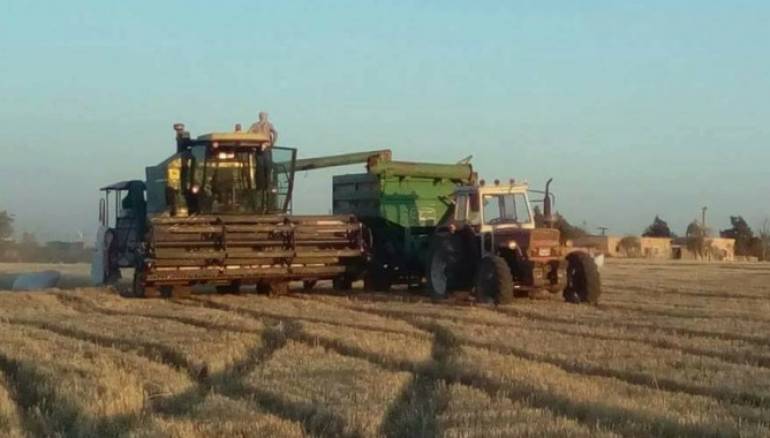Despite the wheat harvest nearing completion in Hassakeh province more than a week after its launch, the recurrence of fires has worried farmers whose fields are still waiting for the harvesters to enter.
Mr. Ibrahim, a farmer from the village of Abah, reported that farmers in the area were close to finishing their wheat harvesting, which began early this month with barley and rain-fed crops. The size of the yield varied from one field to another depending on the ability of each farmer to provide fertilizer and fuel to irrigate the crop over the past three months.
He added that the production ranges between 30 and 40 bags of wheat per hectare, equivalent to 3-4 tons. The farmer pointed out that the farmers are worried about another fire in the fields before completing the harvesting.
Farmer Abdi Saeed lost 300 acres of harvest in the village of Um Ushaba as a result of a fire a few days ago. The fire destroyed hundreds of acres of wheat in Tal Shaer in Qamishli, Asadiya in Ras al-Ayn and Tal Jehan in Al-Malikiyah, according to activist Mahmoud al-Ahmad.
Ahmad said that the firefighters, which are supposed to have been on alert during the harvest, failed to extinguish any fires, but the residents are quick to help the owners of the fields to put out the fire with simple means, including plowing around the fire with tractors.
The activist explained that the regime has set the price of barley at 110 Syrian pounds a kilogram, compared to 140 Syrian pounds for wheat, at grain receiving centers in regime-controlled areas of Qamishli. On the other hand, the Democratic Union Party administration is trying to compete with the regime government by buying wheat from farmers at 143 Syrian pounds in the Al-Malikiyah area and storing it in the Tal Adas, Kratchuk and Al-Malikiyah grain centers.
This article was edited by The Syrian Observer. Responsibility for the information and views set out in this article lies entirely with the author.


